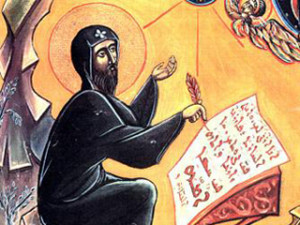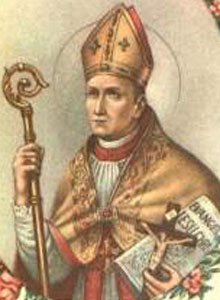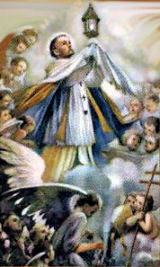
St. Anthony of Padua (1195-1231)
Image: Catholic Online
(Franciscan Media) Born in Portugal Lisbon into a wealthy family, at his baptism he was given the name ‘Fernando’ according to Pope Benedict XVI and was educated by a group of Priests writes Catholic News Agency until the age of 15 when he made a decision to enter a religious life.
Fernando moved into St. Vincent’s Monastery in Lisbon which followed the monastic Rule of St. Augustine — Fernando however disliked the constant visits and interruptions of his friends and subsequently moved to a more remote house of the same Order, there he dedicated himself to solitude study of the Bible and of the Church Fathers, acquiring theological knowledge that was to bear fruit according to Pope Emeritus Benedict, later in life in his teaching and ministry activities.
In 1220 when the remains of Saint Berard and Companions (Feast Day: 16 January) the first Franciscan Martyrs were brought to Portugal for burial and veneration, Fernando was inspired by their lives and commitment to the Gospel. — Later when a group of Franciscan’s later visited the Monastery, Fernando told them that he wanted to adopt their humble lifestyle. Some of the Augustine Monks criticized and mocked Fernando’s interest in the Franciscans which had only been established recently before in 1209 but prayers, confirmed his desire to follow the example of St. Francis (Founder of the Franciscan Order) who was still living at the time.
Fernando eventually obtained permission to enter the Franciscans. At that time, he took the name ‘Anthony’ after the 4th century Monk St. Anthony of Egypt (Feast Day: 17 January)
Anthony desired to emulate the commitment of St. Berard and Companions the Franciscan Martyrs that gave their life to God while ministering to the Muslims. Traveling by ship, Anthony became seriously ill and could not carry out his intended work–the ship was supposed to take him to Spain for treatment but was blown off course and ended up in Italy.
Through this series of mishaps, Anthony ended up near Assisi, where St. Francis was holding a major meeting for members of his Order of Franciscans. Despite Anthony’s poor health, he resolved to stay in Italy to be closer to St. Francis himself, initially concealing his deep knowledge of Theology and Scripture, offering to serve in the kitchen among the Brothers, together with reading scriptures and performing other menial tasks.
At the time, no one realized that Anthony was anything but a kitchen assistant and obedient Franciscan Priest according to Catholic News Agency however around 1224 Anthony became obligated to deliver an improvised speech before an assembly of Dominicans and Franciscans, none of who had prepared any remarks. Anthony’s eloquence stunned the crowd and St. Francis himself soon learned what kind of man the ‘Dishwashing Priest’ really was.
Subsequently St. Francois gave Fr. Anthony permission to teach theology in the Franciscan Order, “provided however, that as the Rule prescribes the spirit of prayer and devotion may not be extinguished.”
Fr. Anthony taught theology in several Italian and French cities, while strictly following his Franciscan vows while also preaching regularly–Later he dedicated himself entirely to the work of preaching as a Missionary in France, Italy and Spain, teaching an authentic love of God to many people–whether they be Royalty or Peasants who had fallen away from the Christian faith, Catholicism and morality.
Known for his bold preaching and austere lifestyle, Fr. Anthony also had a reputation as a worker of miracles which often came about in the course of disputes with heretics.
Fr. Anthony’s biographers related stories of a few of the miracles:
- The first being of a horse which refused to eat for three days, accepting food only after it had been placed in Adoration before the Eucharist that Fr. Anthony brought in his hands;
- Another miracle involved poisoned meat which Fr. Anthony ate without any harm after making the sign of the Cross over it;
- A final miracle recounted a group of fish which rose out of the sea to hear Fr. Anthony’s preaching where heretical residents of a city refused to listen.
Following Lent in 1231 Fr. Anthony’s health was in decline–he retreated to a remote location, taking along two companions for assistance. When his worsening health persisted, Fr. Anthony was carried back to the Franciscan Monastery in Padua, where crowds of people converged in groups, in hopes of paying their homage to the Holy Priest–After receiving last rites, Fr. Anthony prayed the Church’s seven traditional penitential psalms, sung a hymn to the Virgin Mary and died on this date at the age of 36 in 1231
Fr. Anthony’s well established holiness, combined with many miracles working during his lifetime, so moved Pope Gregory IX who knew Fr. Anthony personally to Canonize him just 1 year following his death adding:
“St. Anthony, residing now in heaven is honored on earth by many miracles daily seen at his tomb, which we are certified by authentic writings.”
More here from EWTN and here from CatholicSaints.Info
Related: For Today’s Holy Scripture Readings for the Memorial of St. Anthony of Padua Visit: -USCCB
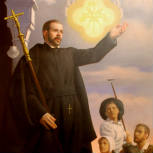
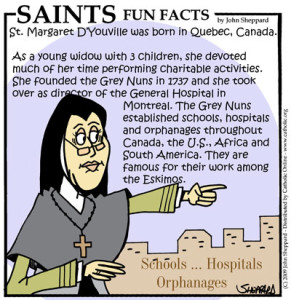
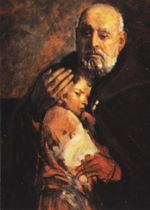

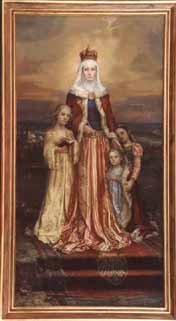
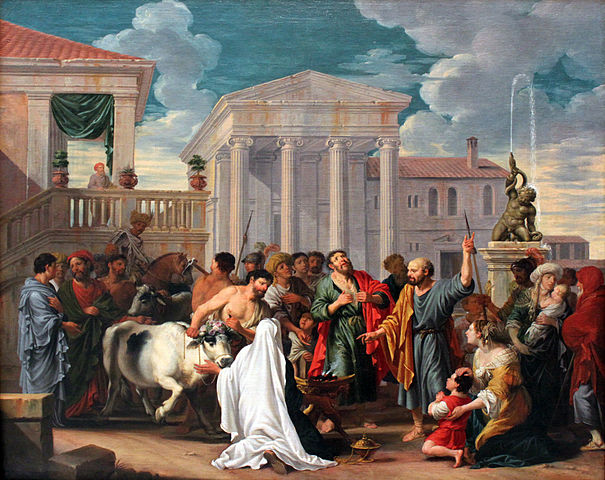 Saint Barnabas and Apostle Paul in Lystra
Saint Barnabas and Apostle Paul in Lystra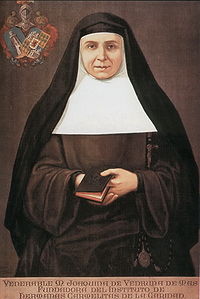 Saint Joachima (1783-1854)
Saint Joachima (1783-1854)